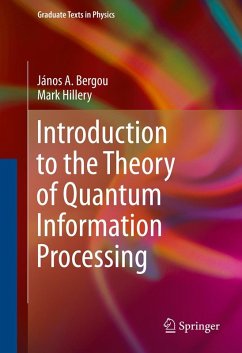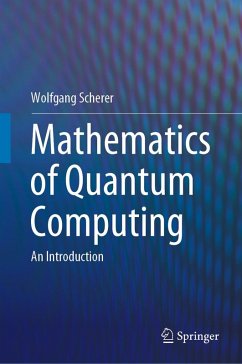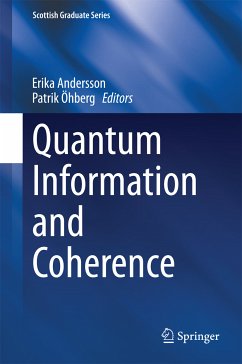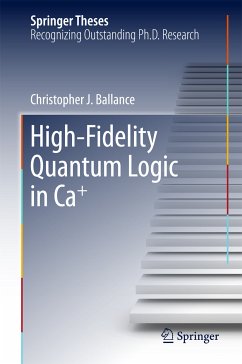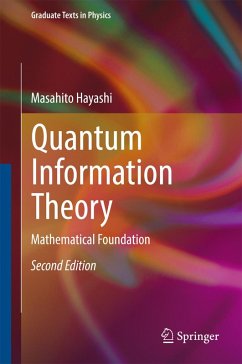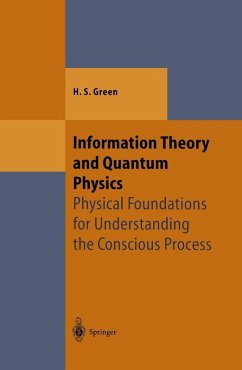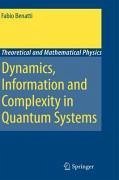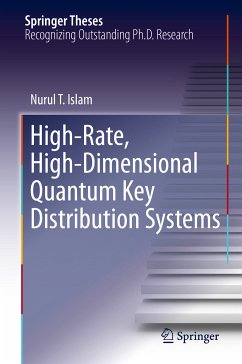
Quantum Information Processing (eBook, PDF)
Theory and Implementation
Versandkostenfrei!
Sofort per Download lieferbar
52,95 €
inkl. MwSt.
Weitere Ausgaben:

PAYBACK Punkte
26 °P sammeln!
This new edition of a well-received textbook provides a concise introduction to both the theoretical and experimental aspects of quantum information at the graduate level. While the previous edition focused on theory, the book now incorporates discussions of experimental platforms. Several chapters on experimental implementations of quantum information protocols have been added: implementations using neutral atoms, trapped ions, optics, and solidstate systems are each presented in its own chapter. Previous chapters on entanglement, quantum measurements, quantum dynamics, quantum cryptography, ...
This new edition of a well-received textbook provides a concise introduction to both the theoretical and experimental aspects of quantum information at the graduate level. While the previous edition focused on theory, the book now incorporates discussions of experimental platforms. Several chapters on experimental implementations of quantum information protocols have been added: implementations using neutral atoms, trapped ions, optics, and solidstate systems are each presented in its own chapter. Previous chapters on entanglement, quantum measurements, quantum dynamics, quantum cryptography, and quantum algorithms have been thoroughly updated, and new additions include chapters on the stabilizer formalism and the Gottesman-Knill theorem as well as aspects of classical and quantum information theory.
To facilitate learning, each chapter starts with a clear motivation to the topic and closes with exercises and a recommended reading list.
Quantum Information Processing: Theory and Implementation will be essential to graduate students studying quantum information as well as and researchers in other areas of physics who wish to gain knowledge in the field.
To facilitate learning, each chapter starts with a clear motivation to the topic and closes with exercises and a recommended reading list.
Quantum Information Processing: Theory and Implementation will be essential to graduate students studying quantum information as well as and researchers in other areas of physics who wish to gain knowledge in the field.
Dieser Download kann aus rechtlichen Gründen nur mit Rechnungsadresse in A, B, BG, CY, CZ, D, DK, EW, E, FIN, F, GR, HR, H, IRL, I, LT, L, LR, M, NL, PL, P, R, S, SLO, SK ausgeliefert werden.



